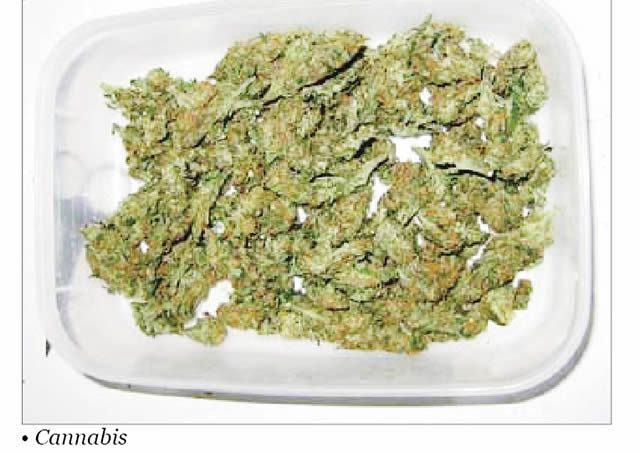Germany is going to partially legalize cannabis starting Monday, fulfilling a major promise of Chancellor Olaf Scholz’s coalition government.
However, getting the drug won't be easy.
Here are the new rules:
April fool?
Starting April 1, it will be allowed to have up to 25 grams of dried cannabis for personal use — enough to make around 80 joints, depending on how much is used.
Growing cannabis at home will also be permitted, with a limit of up to three plants per adult and 50 grams of dried cannabis.
But it will still be against the rules to smoke the drug within a 100-meter radius of schools, kindergartens, playgrounds, and public sports facilities.
Smoking will also be prohibited in pedestrian zones between 7am and 8pm.
‘Cannabis clubs’
Starting July 1, Germany plans to establish regulated cannabis cultivation associations to allow people to legally obtain the drug.
These 'cannabis clubs' will have up to 500 members each and will be able to sell a maximum of 50 grams of dried cannabis per month to each member.
Individuals under 21 will be limited to 30 grams of cannabis per month containing no more than 10 percent of the psychoactive substance tetrahydrocannabinol (THC).
Joining and using cannabis at the clubs will not be allowed, and membership will be restricted to one club at a time.
No tourists
The only legal ways to obtain cannabis will be to grow it at home or get it through the cannabis clubs, with both options limited to people who have lived in Germany for at least six months.
The restrictions are meant to address concerns from opposition parties, particularly the conservative CDU-CSU alliance, that the new law could promote “drug tourism”.
The government of Scholz’s Social Democrats, the Greens, and the pro-business FDP had initially promised to go further and permit cannabis to be sold in shops, a proposal that was rejected by the EU.
A second law is now being developed to test the sale of the drug in shops or pharmacies in certain regions.
Criticism
The government asserts that the new law will reduce the health risks associated with cannabis by addressing the issue of contaminated substances on the black market.
However, the law has been widely criticized by medical associations and health groups.
It has also resulted in complaints from regional authorities responsible for overseeing its implementation.
They are concerned that they will have to deal with additional bureaucracy as they will need to reverse prison sentences and fines that have already been imposed for offenses that are no longer punishable under the new law.
Friedrich Merz, the leader of the opposition conservatives, has already cautioned that if his party were to regain power after the 2025 elections, they would “repeal the law immediately”.
AFP



